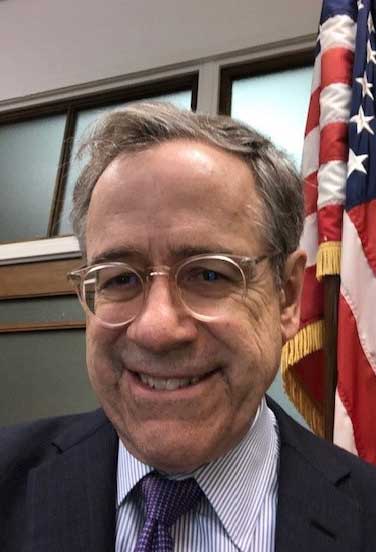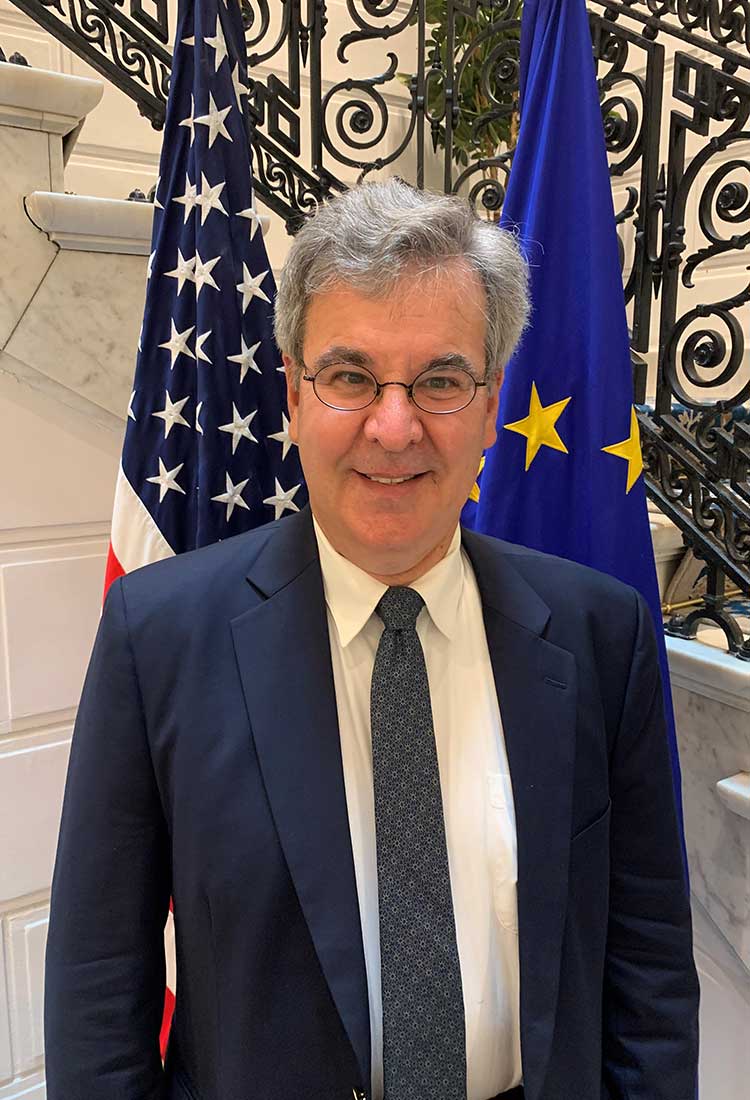

It is an honour to be able to contribute to the Eurojust 20th anniversary commemorative book. Indeed, over the past 20 years, we have had the privilege, so to speak, of seeing Eurojust grow up: in our positions at the U.S. Department of Justice, we looked on from the moment of Eurojust’s birth, have watched it as it took its first steps and have seen it move through its growing pains to reach maturity. And we are very proud to have played our own small role in Eurojust’s history – as, one might say, Eurojust’s American cousin.
Our informal relations with Eurojust began from its inception but were formalised in 2006, as part of the broader knitting together of the European Union and the United States through agreements to fight terrorism and transnational crime following 9/11. In 2006, with the key assistance of Thomas Burrows of our Office of International Affairs, the U.S. Department of Justice-Eurojust Agreement was concluded and laid the groundwork for the US presence at, and future cooperation with, Eurojust.
To be sure, in the early years of this relationship, the United States and Eurojust needed time to identify how each could help the other and deepen the relationship.
Initially, the post of US liaison prosecutor was filled by the U.S. Department of Justice Counsellor at the US Mission to the EU in Brussels, who worked with Eurojust in addition to his other duties and often spent long hours commuting between Brussels and The Hague. As time passed, however, it became increasingly clear that Eurojust possessed unique structures that combined well with US investigative and prosecutorial capabilities, and which could facilitate increased and more effective cooperation between the United States and the European Union in investigating and prosecuting crime. As these synergies were identified, US-Eurojust cooperation intensified significantly, and, as a result, the US commitment to Eurojust has increased, with recent years seeing the US presence at Eurojust shift from a part-time presence to a full-time presence of first one, and then two, Liaison Prosecutors posted in The Hague – as well as the U.S. Department of Justice Counsellor in Brussels, who still logs significant train time.
Of course, Eurojust is first and foremost an institution dedicated to enhancing cooperation between the prosecutors of EU Member States. But it has had the vision to do much more than that, reaching out to become a bridge between prosecutors in Europe and the rest of the world. To be a Liaison Prosecutor at Eurojust for a third country like the United States is thus an experience for a prosecutor like none other. Eurojust provides a unique ability for our Liaison Prosecutors to discuss cases with the national members of every EU Member State, as well as with Liaison Prosecutors from a diverse group of other partner countries, which in itself is an important contribution to international prosecutorial cooperation.
At Eurojust, all of these prosecutors are located down the hall from one another, making it easier than ever to seek – or give – advice about whom best to contact for a particular purpose or how best to meet national legal requirements in a particular situation. But there is much more beyond this: there is a sophisticated infrastructure provided to investigators and prosecutors in the field, facilitating their abilities to cooperate closely and rapidly, whether it be case-specific, or at a broader criminal justice practice and policy level. This is critical to the ability to prosecute wrongdoers effectively in today’s world, in which the criminals and the evidence of their crimes are often scattered widely in different countries.
By providing this permanent infrastructure, Eurojust makes it much easier for practitioners to plan and carry out real-time meetings to enhance case cooperation and deconflict problems, in which authorities from many different countries can work together in real time. This includes the first-class conference facilities and interpretation services Eurojust brings to prosecutors, which enhance the ability to bring together, either in person or virtually, prosecutors in many different countries who may be working on the same or different aspects of a particular criminal scheme, or who may be investigating different activities of the same criminal group.
This capability is of great value for the United States, whose people, companies and government are often victimised by the same criminal actors, including cybercriminals, corrupt officials and terrorists, that affect the Member States of the European Union. Our ability through Eurojust structures to coordinate easily with the countries that so closely share objectives and concerns we have in combatting transnational crime cannot be understated. US prosecutors have participated in hundreds of case coordination meetings at Eurojust, and the United States has opened an increasing number of cases itself, as the demand for such coordination has markedly increased.
But Eurojust does still more than this. It has also established and continues to augment networks for combatting crime that bring together the most experienced and knowledgeable practitioners and policymakers in their respective fields, in order to find solutions for challenges in combating various types of crime or to provide guidance to prosecutors in the field to streamline cooperation and enhance their effectiveness. For example, over a more than 10-year period, the U.S. Department of Justice has worked with Eurojust to improve structures for identifying, investigating and prosecuting terrorists who have travelled to Europe from zones of conflict in the Near East. This work, which is continuing to this day, has enabled the US government to share evidence coalition forces have gathered on the field of battle to be shared with our European colleagues more quickly and effectively for investigation and prosecution.
We have also worked with Eurojust continuously to improve international judicial cooperation, starting with a series of meetings held shortly after the entry into force of the US-EU extradition and Mutual Legal Assistance agreements in 2011. These meetings have brought together international cooperation experts from the United States and EU Member States to work together to facilitate the effective implementation of those agreements, particularly in the digital age. In this regard, we are currently working together to facilitate the ability of EU practitioners to access electronic evidence held by providers based in the United States, such as by providing guidance on how to prepare mutual legal assistance requests to the United States and work with its central authority in a manner that will enhance the ability to rapidly and successfully obtain the electronic evidence that is increasingly needed to prosecute virtually all forms of crime.
And Eurojust has shown the ability to pivot quickly to address evolving forms of crime. Most recently, the emergence of ransomware has created new challenges in identifying and building criminal cases against malicious actors and retrieving ransoms that have been paid. The U.S. Department of Justice is partnering with Eurojust for the purpose of providing best practices for responding to ransomware, in order to assist investigators and prosecutors on both sides of the Atlantic. This work, currently at its inception, builds on other successful initiatives we have undertaken with Eurojust and will facilitate our criminal law enforcement authorities’ ability to combat this form of criminality successfully.
These are but a few examples that illustrate the depth of cooperation between the United States and Eurojust. In short, in Eurojust, the U.S. Department of Justice has found a true partner in combating serious transnational crime, where we are able to meet with our friends and counterparts, build meaningful structures to bridge the differences in legal systems and make the public safer from criminals. Of course, none of this would have been possible without the strong support of the European Union institutions, and Eurojust leadership, in particular that of Eurojust President Ladislav Hamran over the past five years.
On behalf, then, of the United States, we would like to convey our best wishes on Eurojust’s 20th anniversary. We wish it continued and yet greater success in the future. It can count on the United States as a friend, as a partner – indeed, as a transatlantic cousin – in that effort.
